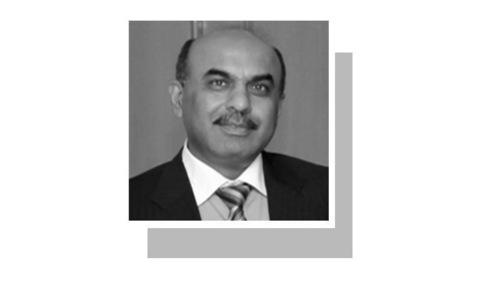The Islamabad High Court (IHC) on Monday dismissed a petition seeking a ban on PML-N supremo Nawaz Sharif's speeches, noting that the "tendency of invoking the constitutional jurisdiction of a high court in matters involving political content is certainly not in public interest".
The petition stated that Nawaz has started actively participating in politics and has initiated a smear campaign against state institutions, after going abroad on the pretext of availing medical treatment. It urged the court to order that Nawaz's recent "hate speeches" be taken down from the internet and that he should be prohibited from delivering speeches in future. The plea was heard by IHC Chief Justice Athar Minallah.
The former prime minister, after a hiatus lasting more than a year, reappeared on the political scene last month to lash out at the PTI government and the Army. Nawaz — who is currently in London — gave a speech at the first meeting of the Pakistan Democratic Movement alliance, where he cast doubt over the conduct of the 2018 general elections and workings of the parliament and has also addressed PML-N meetings where he criticised the government and the military.
The IHC verdict, which was reserved earlier today, said that the petitioner argued that Pakistan Electronic Media Regulatory Authority (Pemra) had banned speeches delivered by individuals who were declared as absconders in a case. Taking this argument into account, the court said that the petitioner "could not give a plausible explanation for invoking the jurisdiction of this court when an alternate remedy was available" to them.
The petitioner had also expressed concern that the country's security was being "threatened", the five-page verdict noted. The court, however, dismissed this argument in its ruling, saying that "the security of Pakistan is not frail nor can be threatened by mere political rhetoric". According to the verdict, the petitioner's concerns about the country's security were "misconceived".
"The people of Pakistan, through their chosen representatives, have the will and resolve to safeguard the security of Pakistan. The security of Pakistan is surely not dependent on the issuance of a writ by this court," the verdict read.
Furthermore, the petitioner had not been able to convince the court that any of his rights had been refused before filing the plea, the ruling said. According to the court, "demand of the person asserting the right must have been refused" before they approach a court for relief.
In addition, the high court said that it was not in the public interest to invoke the "constitutional jurisdiction of a high court in matters involving political content", especially in cases where the law provides "alternative remedies".
"Politically motivated petitions inevitably make the administration of justice including the courts controversial because politics inherently is adversarial in nature," the court said in the ruling.
"Courts ought to exercise restraint because of the consequences," the ruling stated and added that such petitions "unnecessarily involve a court in controversial matters" which can be addressed on other forums. Additionally, the verdict said, such pleas can also cause "miscarriage of justice to legitimate litigants" as their cases get delayed while courts are occupied with petitions of such nature.















































